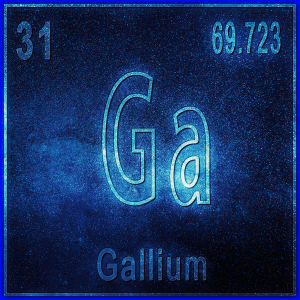by
John R. Fischer, Senior Reporter | September 28, 2021

Theragnostics has partnered with AAA to develop and sell Gallium-68 one-step PET radiopharmaceuticals
Advanced Accelerator Applications S.A. has obtained exclusive rights to commercialize Theragnostics’ Gallium-68 one-step PET radiopharmaceuticals.
Producing Ga-68 in a single multidose vial in one step makes it possible to create more doses at one time when compared to the conventional multistep approach, helping to meet the demand for Ga-68 and maximizing its supply in the face of an increasing number of potential cancer targets.
“This agreement enables us to accelerate the development of our own novel radionuclide therapy and diagnostic portfolio and has the potential to offer new and expanded treatment options to patients in several cancers,” chief executive officer Greg Mullen of Theragnostics, said in a statement.



Ad Statistics
Times Displayed: 365092
Times Visited: 6977 Quality remanufactured Certified Centrifuges at Great prices! Fully warranted and backed by a company you can trust! Call or click for a free quote today! www.Centrifugestore.com 800-457-7576
Advanced Accelerator Applications, under parent company Novartis, produces a range of imaging agents, including Lutetium-177, which is used for the treatment of gastroenteropancreatic neuroendocrine tumors and is often paired with Ga-68 in the growing field of theranostics,
according to Precision Oncology News.
A number of companies have submitted drug master files for high production of Ga-68,
including ARTMS. The radiopharmaceutical is expected to be particularly useful in the diagnosis of prostate cancer. Currently, this cancer is imaged with F-18 fluciclovine and C-11 choline. Both, however, are only approved for use in patients with suspected cancer recurrence.
With Ga-68, providers hope to spare patients from unnecessary surgery and locate biochemical evidence of recurrent prostate cancer for treatment decision-making. In addition, it is expected to not be affected by the same limitations for CT, MR and bone scans in detecting prostate cancer lesions.
The FDA
approved Gallium 68 PSMA-11 PET scans back in December, making this the first PSMA-targeted PET tracer for prostate cancer.
Prior to this, GE and Theragnostics
teamed up to produce and sell GalliProst, a PSMA PET/CT agent derived from Gallium-68 that can indicate whether or not the disease is in the prostate gland, has spread to the local lymph nodes or has spread with more distant metastasis.
The first 68Ga- PSMA-11 product for prostate cancer imaging is restricted for use in two academic institutions, with interest growing for other gallium-based imaging alternatives that the FDA is reviewing. Cardinal Health Nuclear & Precision Health Solutions (Cardinal Health) and Telix Pharmaceuticals (US) Inc. (Telix)
discussed growing demand in a white paper released in May, along with pathways for radio-isotope production, distribution and clinical application.
Dr. Christian Behrenbruch, chief executive officer of Telix Pharmaceuticals Limited, says one possible pathway is to invest in and partner with strong networks of radiopharmacies. “There is a perception in the industry that supply chain issues may limit the availability of gallium-based radiopharmaceuticals. Whilst this may have been true historically, this is no longer the case. The strength and power of gallium lies in its flexibility, with production by either cyclotron or generator. This offers greater flexibility and opportunity for scale than other purely cyclotron-based isotopes.

